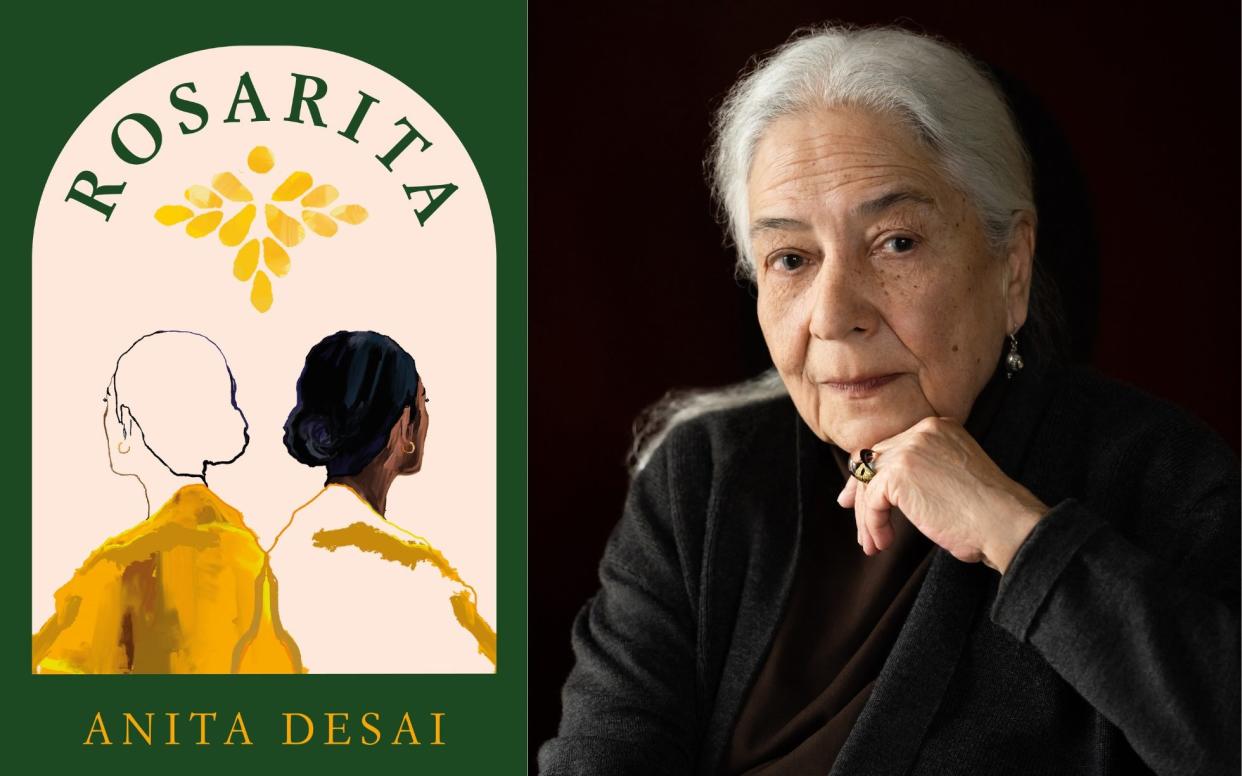If this is Anita Desai’s swansong, it’s a magnificent way to go

A second-person narration is always discomfiting. It makes you feel seen, scrutinised, observed; it intrudes on your readerly detachment. Rosarita, Anita Desai’s first new fiction in 13 years, both enacts and exploits this property. The novella begins in San Miguel, Mexico.
“You” are sitting on a bench, reading a newspaper, when you notice a glamorous woman “staring at you fixedly”: “it is making you uneasy to be the focus of such unembarrassed attention”. The woman comes over. She says you are the spitting image of an artist she once knew. “Of course you are, you must be, my adored Rosarita’s little girl”.
From the conversation that follows, we learn that you’re an Indian student of Spanish, called Bonita. Claiming “mistaken identity”, Bonita says that her mother’s name was Sarita, not Rosarita, that she wasn’t an artist, and that she “never even visited Mexico”. But, the woman insists, “your mother will have told you about me… What friends we were? What times we had together?”
In her hotel that evening, Bonita reflects on the encounter. Now that she thinks about it, she recalls a painting on the wall of her childhood home of “a woman seated on a park bench – and yes, it could have been one here in San Miguel.” And then there was the period when her mother was “absent”, when Bonita lived with her grandparents. She never did say where she went during those years; she was always “stubbornly silent” about the past.
Wanting now to believe “the Stranger”, Bonita seeks her out. But when she asks the Stranger to tell her more about Rosarita, the Stranger “appears to wilt, turning into a shadow, losing all colour, all animation”. Bonita has to practically force the information out of her: “If it has all been a cruel joke, you will not let her evade it.” It’s a startling role-reversal. For the rest of the novella, the truth about Bonita’s mother is held in teasing, compelling suspense. “How could she have come on this adventure without uttering a word to you,” Bonita wonders, “then return simply to resume the life she knew?”

The question has broader resonance for Desai. Mexico, like her birth country of India, is a former European colony; its revolution in the 1910s was as seismic and bloody as India’s partition in the 1940s. Silence and forgetting were ways of dealing with those national traumas. But they aren’t sustainable solutions. As Bonita travels deeper into Mexico, her comforting rationalisations about her mother break down. In a “brief, hallucinatory moment”, she even seems to see her mother: “It is so real that you are paralysed.”
Rosarita is not the Desai of Clear Light of Day (1980) or Fasting, Feasting (1999), her great, studiously realist and Booker-shortlisted novels of Indian family life. This is a much more ludic tale, as taut and weird and entrancing as a story by Jorge Luis Borges. If it’s to be her swansong – Desai is 87 – then it’s a magnificent way to go out.
Rosarita is published by Picador at £12.99. To order your copy, call 0808 196 6794 or visit Telegraph Books


